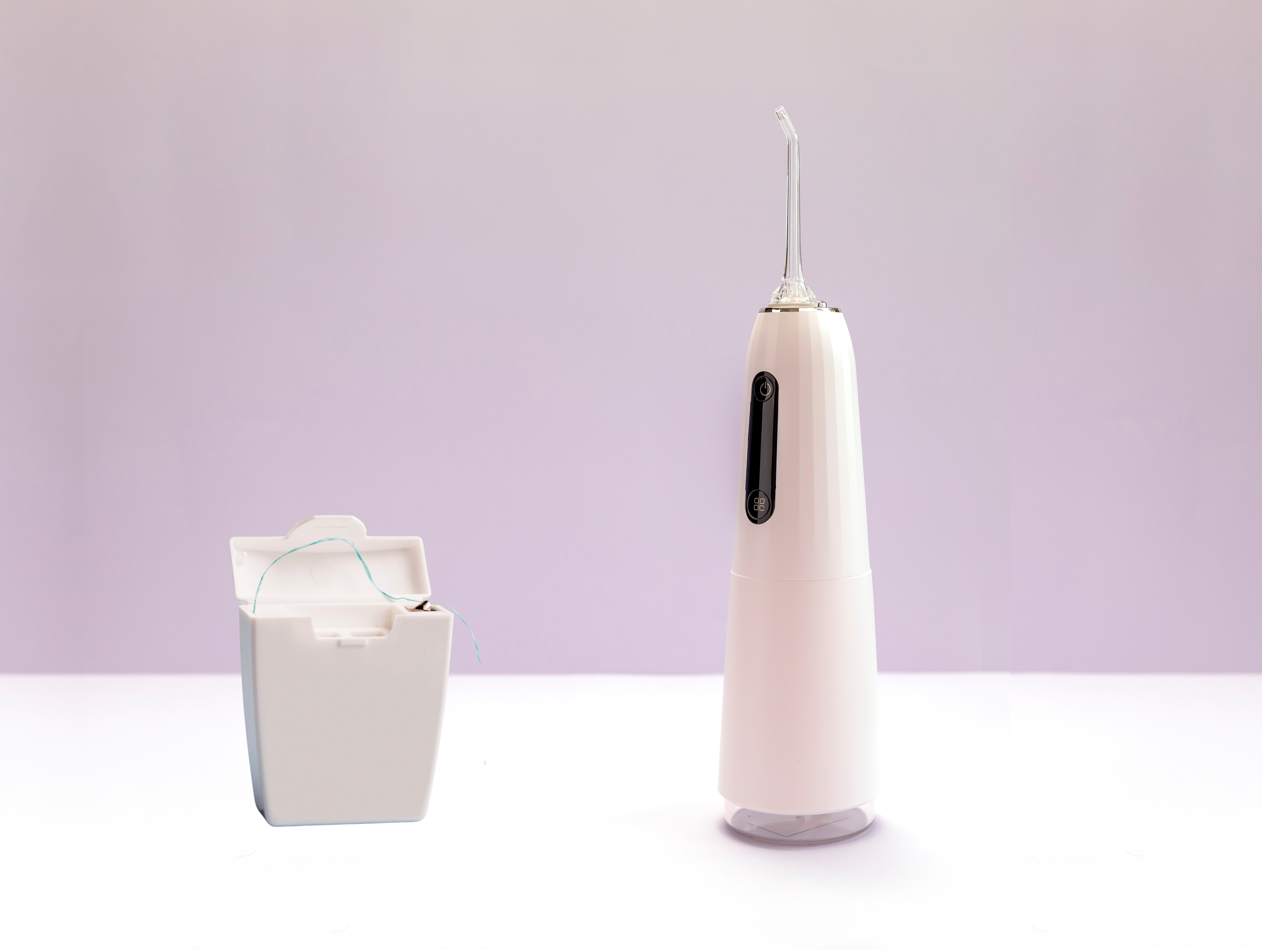You probably already know that flossing is an essential part of maintaining good oral health. But with modern tools like water flossers entering the market, many patients find themselves asking: “Should I stick to traditional string floss, or is water flossing the way to go?”
At Hamilton Dental Associates, we’re here to break down the benefits and drawbacks of both options so you can make the best decision for your teeth and gums. Whether you’re tackling gum disease, plaque removal, or simply looking to enhance your oral hygiene, this guide has you covered. Let’s get started!
Understanding the Basics of Interdental Cleaning
Whether you’re using traditional string floss or a water flosser, the primary goal of flossing your teeth remains the same: removing food particles and plaque from areas your toothbrush can’t reach. The American Dental Association emphasizes the importance of daily flossing as an essential part of maintaining healthy gums and preventing periodontal diseases.
Traditional string flossing involves using waxed or unwaxed string dental floss to clean between teeth. It’s a method that dentists have recommended for generations. In contrast, water flossers (also known as oral irrigators or dental water jets) use a pressurized stream of water to clean between teeth and along the gum line.
The Pros and Cons of Traditional String Flossing
String flossing has been the go-to method for interdental cleaning for many years. It’s inexpensive, readily available, and effective. However, many patients find traditional flossing challenging:
- Can be time-consuming
- May cause discomfort for those with sensitive gums
- Requires careful technique to effectively remove plaque
- Can be difficult to use in tight spaces
- Might cause bleeding for those with gum sensitivity
Water Flossing: A Modern Approach to Oral Hygiene
Water flossers have gained significant popularity in recent years. These oral irrigators offer several advantages:
- Multiple pressure settings for customized cleaning
- Gentle on sensitive gums
- Excellent for patients undergoing orthodontic treatment
- Effective at removing plaque in hard-to-reach areas
- Easier to use for those with dental work or limited dexterity
Water flossers are particularly beneficial for:
- Individuals with braces
- Those with dental bridges
- People with sensitive gums
- Patients who struggle with traditional flossing techniques
Comparing Effectiveness: Water Flossers vs. String Floss
When it comes to plaque removal, both methods have their merits. Water flossers, compared to traditional dental floss, show promising results, especially for:
- Cleaning around dental work
- Reaching tight spaces between teeth
- Gentle cleaning of the gum line
- Reducing bacteria buildup
Patients often find that using a water flosser is more comfortable and less time-consuming than traditional string flossing. The pressurized stream of water can effectively clean tooth surfaces and remove food particles that brushing alone might miss.
Making the Right Choice for Your Oral Health
The best interdental cleaning method varies from person to person. Some patients prefer the traditional approach of string flossing, while others find water flossers more convenient. At Hamilton Dental Associates, we recommend:
- Trying both methods to see what works best for you
- Combining water flossers with interdental brushes for comprehensive cleaning
- Maintaining a consistent daily flossing routine
- Consulting with your dental hygienist or orthodontist
Your Path to Optimal Dental Hygiene
Choosing between water flossing and string flossing isn’t about finding a one-size-fits-all solution — it’s about finding the method that helps you maintain good oral health consistently. Whether you choose a water flosser or traditional floss, the most important factor is regular, thorough cleaning.
Ready to transform your dental hygiene? Schedule a consultation with Hamilton Dental Associates today! Our expert adult and pediatric dentists in NJ can help you or your child develop the perfect oral care routine tailored to your unique needs. Don’t wait — your healthiest smile is just a phone call away!







